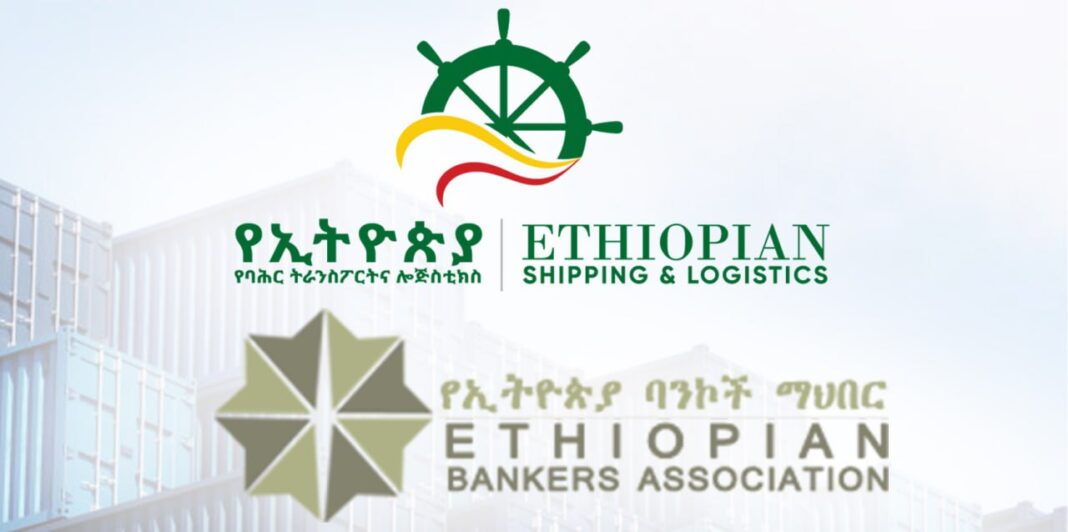Ethiopian Shipping and Logistics (ESL) is currently in discussions with financial institutions to negotiate a mutually beneficial agreement regarding bank service charges, which ESL has previously criticized as excessively high.
As a state-owned deep-sea vessel operator, ESL has expressed concerns that the substantial service fees deducted by banks have adversely affected its revenue. Consequently, ESL is urging banks to lower their commission and service charges, particularly for international transfers.
However, financial institutions have responded with dissatisfaction, arguing that ESL, which dominates Ethiopia’s import sector, has not sufficiently considered the costs that banks incur in generating foreign currency.
Some banks have also noted that ESL should address its concerns with specific financial firms that impose higher charges rather than generalizing across all banks.
This issue was recently discussed at a Bankers Association meeting attended by bank presidents, who highlighted the importance of further negotiations to reach an acceptable resolution for ESL.
Weeks ago, bank executives informed Capital that they were unhappy with ESL’s broad categorization of all partner banks and called for constructive discussions to find a mutually agreeable solution.
In response, ESL acknowledged that while many banks have accepted its proposed fee structure, it remains open to dialogue with those interested in further negotiations.
Sources at ESL indicate that the company is now engaging in direct talks with individual banks to finalize service charge rates.
“We are negotiating with banks that are open to agreeing on revised rates,” an ESL representative told Capital, although specific figures have not been disclosed.
ESL’s Initial Warning to Banks
On February 14, ESL sent a letter to 24 domestic banks expressing concerns over excessive transfer fees applied to transactions involving its Citibank account. The company warned that these high fees were harming its operational efficiency and market competitiveness.
The letter, signed by Wondimu Denbu, ESL’s Deputy CEO for Corporate Services, stated that steep service charges would compel the company to pass costs onto clients, potentially undermining its competitive edge.
This development follows the Ethiopian government’s decision to end ESL’s long-standing monopoly over multimodal transport for most imported commodities, a privilege it held for nearly 15 years.
Banks have resisted ESL’s unilateral fee proposal, arguing that their operational costs, which include foreign currency acquisition and low-interest credit provisions, justify their charges.
A bank president voiced frustration, stating, “Our institution incurs substantial costs in generating foreign currency, including providing credit at much lower interest rates than the market average.”
ESL has requested that banks limit service fees to 1% for USD transfers related to maritime and Djibouti port clearance earnings, and 2.5% for birr transfers.
In response, some banks proposed alternative rates. For example, one major bank suggested charging 3.5% for forex transactions and 2% for birr transfers in order to preserve its business relationship with ESL.
Bank leaders contest ESL’s assertion that some institutions impose fees as high as 11%, claiming that such figures do not accurately represent standard banking charges.
They also pointed out that while ESL may have payment disputes with certain banks, others have no issues, making a blanket warning unnecessary.
As the sole deep-sea vessel operator on the continent with ten vessels, ESL plays a vital role in the country’s import-export sector. The company manages at least USD 50 million in monthly international payments to cover expenses such as slot carriers, fuel, and Djibouti port operations.
An ESL finance expert emphasized the financial burden of high bank fees: “Banks charge between 4 to 11 million birr for every USD 1 million transferred, which is unsustainable for our operations.”
With negotiations ongoing, both parties are striving for a compromise that addresses ESL’s need for cost efficiency while considering the banks’ operational realities. The results of these discussions will significantly impact Ethiopia’s logistics and financial sectors, according to experts.







